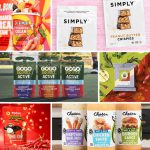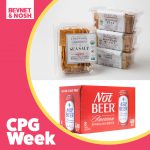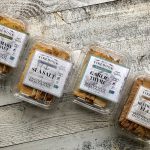Patagonia Goes From Parkas to the Pantry
Patagonia, long seen as a leader in outdoor gear and apparel, has decided to step up the pace of its move out of the changing room and into the kitchen with the expansion of their Patagonia Provisions line. With 29 SKUs, including soups, bars, jerky, cereal and more, the line is on its way to become a key flanker to Patagonia’s core business.
Although the first Patagonia Provisions products were launched in 2013, recent efforts over the last two months have brought the food brand increasingly more attention. In August, Patagonia released a 25-minute documentary that examined the role food plays in, as the company deems it, the planet’s current “environmental crisis.” Distributed online, the film featured several of Patagonia Provisions’ suppliers and producers.

“The relationship is a long-term thing,” Chris Ettinger, the brewmaster and founder of Portland, Oregon’s Hopworks Urban Brewery told Brewbound (Project Nosh’s sister publication). “The beauty of sustainability is getting to know the people responsible and developing relationships.”
Of course, the more attention Patagonia Provisions gets, the more the “why” questions comes up, specifically why an outdoor gear and clothing brand is now trying to summit the world of food and beverage.
“We have touched agriculture for many years and so it’s a very familiar place for us. When you think about cotton, and hemp and wool, these are all things that touch agriculture,” Birgit Cameron, Sr. Director of Patagonia Provisions, told NOSH. “[Food] felt like such a natural extension because it’s very agriculturally related and it is one of the biggest contributors to climate change.”
Cameron says that Patagonia is dedicated to putting the effort into getting the line right. The brand develops their own formulations and then sources the ingredients from suppliers that meet their quality, taste, and sustainability standards. Co-manufacturers produce the line under Patagonia’s careful supervision.
Currently the Patagonia Provisions SKUs are primarily sold in Patagonia and REI stores as well as online. Due to laws around selling alcohol, Patagonia had to turn to new retail channels for the distribution of Long Root Ale. The beer is on shelves in select Whole Foods Markets in California, Oregon and Washington.
At $6.50 for a package of hot cereal or $10 for 2 oz of jerky, Cameron recognizes that at its current price point the line certainly isn’t accessible for all, but she hopes to see that change over time. While scale will help, Cameron says there’s a wider change that needs to occur.

It’s a big hope for what’s currently a small line, but Patagonia has expansion plans in mind. This may include expanding to other retailers, working with more producers to create co-branded products or selling other food brands in stores.
“We really believe that it could rival the apparel side and we’d love to be running neck and next in revenues,” Cameron said. “Of course, that takes a little time, but that would be the hope.”












